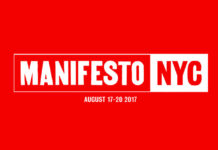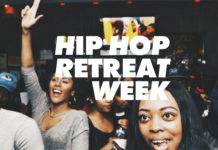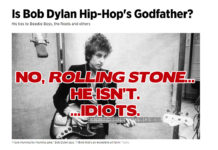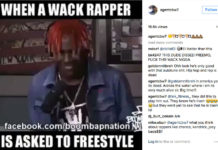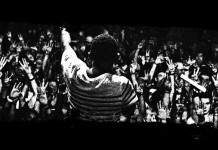Make no mistake, nothing should be taken away from the elegance and eloquence, inspiration and innovation, energy and synergy and integrity of the man, the message, the campaign or the circumstances that resulted in the single most uplifting and exciting change in America since many alive can remember. While countless factors certainly contributed to this monumental victory for the Democratic Party, for President-Elect Barack Obama, and the nation as a whole, the fact remains that Obama is an amazingly capable candidate, ran an amazingly effective campaign, and presented an amazingly appealing message.
That being said, along the course of the campaign, much was made about the question whether America was “ready” for a black president. History has now recorded that at least 52.6% of it is. To many of us, this is wonderful news, breathing life back into the lofty, never-ending aspiration we have been chasing for generations, that of forming a more perfect union. The bells of change have been ringing from the upper class echelon, the well-worn halls of congress to the gritty streets of Everyhood, USA, ever since.
Young urban America has emphatically followed suit, and are particularly quick to remind anyone who will listen that their president is black. Yet, despite the finally-harnessed force of the hip-hop cultural voter bloc, voices of hip-hop luminaries were noticeably hushed during the improbable, yet impressive ascension of Senator Barack Obama to the highest office in any land. Despite the hip-hop generation’s excitement and attachment it feels to their president, it is not lost on anyone that Obama is not exactly a card-carrying member of the trap. A Harvard-educated lawyer who, raised in Hawaii, our next leader was never a candidate to be called Lil’ Barack or Yung Obama, despite his invocation of Jay-Z when brushing Hilary off his shoulder. However, although his connection to hip-hop might be cursory, it can be argued that Sedgwick and Cedar was as much responsible for his victory as his extraordinary campaign, the economic meltdown or the collective “anyone-but-another-republican” American sentiment.
Political observers have long surmised that in any election, especially those on a presidential level, would easily swing toward the left if only African-American, Latino and young voters would show up at the polls, yet surges in interest among these groups in the past fizzled before Election Day. For the most part, these groups just hadn’t voted with the kind of numbers necessary to wrench control away from the status quo political landscape, and even the intervention of Hollywood and youth-oriented voting drives, the youth never quite rocked the vote. In fact, despite a rather ominous threat from a certain iconic figure in hip-hop, when they did not vote, no one actually died.
Well, what a difference four years make. According to CIRCLE, a non-partisan research group, voters aged 18 to 29 increased this election year by at least 2.2 million. Exit polls conducted by MSNBC show that as much as 65% of this group voted for Obama. Again, much of this can be attributed to the Obama campaign’s ridiculously effective use of the internet and Obama’s often criticized “rock star” likability, as well as the huge slant from African-American voters as a whole. But there is more to consider.
In particular, these young voters, particularly the white ones, are the combined members of, and children of, the hip-hop generation. These are the members of society that were enthralled by the realism and guttural excitement portrayed on the big screen watching Boyz In Tha Hood, entranced by the ghetto chronicles of The Chronic and engaged to the adoption of a hip-hop influenced lifestyle. These became the actual “swing voters”, relatively young, white Americans, who were less likely to feel any prejudice toward a candidate based on his color, in part because their lives have been more integrated than any previous generation. Very few sociological forces have heightened a cross-cultural acceptance than the enormously popular influence of the hip-hop sub-culture, and the overwhelming tolerance that hip-hop helped usher into American life may have loosened the jar of racism just enough to edge the 2008 election toward Obama.
Let’s analyze.
My youngest children are 10 and 9, are biracial, and (I might be biased here) are intelligent slightly beyond their years. But like nearly every youngster in America, school, TV, their peers and their parents made it very clear the enormous significance of an Obama nomination and possible election. Many did as I did, personally involving their children in this historic event. I brought mine into the polling booth, and we all simultaneously pulled the lever signaling my vote for the 44th president of the United States. I wanted them to be a part of it, waking them up as soon as CNN projected Obama the overall winner, and again when he delivered his victory speech later that night. To me, and millions of others, this was gigantically monumental. To them, it was moderately cool.
To present an oversimplified analogy, it reminded me of the time we visited Jones Beach to view an air show. Fighter jets, biplane’s flipping and twirling, Army parachutists gliding into the ocean, it was a delightfully impressive event. But to kids, apparently, a plane is a plane, and after a few glances upward, they were just as happy to dig in the sand as I was to watch an F-18 scream by with unparalleled mechanical ferocity.
It’s not that they don’t get it. As unfathomable as an Obama victory may have seemed to the rest of us, to my children, the thought of an African-American running for president and winning was really nothing much more than a 50/50 possibility. There were two guys. One would win, one wouldn’t. The only reason that it was a big deal to them was because it was a big deal to me, and to the rest of the world. Without the constant attention on the historical significance of such a victory, many children might only have had the slightest realization of exactly why this is so groundbreaking.
This is good and bad. As the sting of the injustice which caused the civil rights movement slowly fades from daily life, overt racism continues to slowly skulk from view, and families, communities and cultural influences continue to become increasingly integrated, if we look hard enough, we can see that there is more tolerance, more acceptance, and in some areas, absolutely no exposure to prejudicial environments. While it is important to never lose sight of the painfully difficult times in our nation’s history, we can also afford to realize and be thankful that 18-40 years olds have been alive during a time where there has been an exponential acceptance of the ideals of racial and cultural integration, in no small part fueled by the general public’s exposure to, involvement with and acceptance of hip-hop music and culture.
While the country has taken an enormous step toward realizing the much heralded dream of Dr. King, as well as the private hopes of countless citizens, it is unfortunately just as clear that racial prejudices still exist, and in some areas, by some people, are as disturbingly prevalent as ever. But this year, we saw not only an endorsement of equality hinting that King’s dream could indeed be on its way to fulfillment, but we 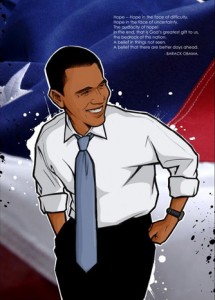 witnessed a strong showing by the upcoming generation of American citizens who are open to openness, and in proving themselves as such, give extra meaning to the mantras of “hope” and “change” so dominant in the Obama campaign.
witnessed a strong showing by the upcoming generation of American citizens who are open to openness, and in proving themselves as such, give extra meaning to the mantras of “hope” and “change” so dominant in the Obama campaign.
While much is said about the negative influences of hip-hop, the aversion to stereotypical images of thuggery and demeaning lyrical content, even the call for laws banning sagging pants, there is a benefit to be gained from the global admiration of a culture that is decidedly American in its creation and evolution, one that has, for better or worse, long captured the attention of American youth of all races, and in its wake, just may have helped pave the way to a time when true U.N.I.T.Y. is no longer just a song, but a frame of mind that continues to lead us all to a better, brighter future in our beloved country.
…it is cause for celebration that the hip-hop generation today is considerably less racist, sexist and homophobic than others born generations earlier. – Russell Simmons, Huffington Post
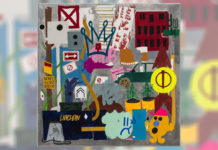
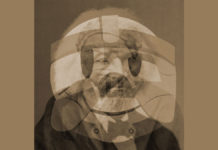
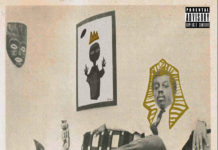
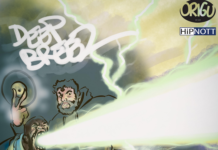

![The Underachievers – Crescendo [VIDEO]](https://www.birthplacemag.com/wp-content/uploads/2017/08/hqdefault-2-218x150.jpg)


![Fat Joe & Remy Ma ft. The-Dream – Heartbreak [VIDEO] Fat Joe Remy Ma The Dream - Heartbreak Video](https://www.birthplacemag.com/wp-content/uploads/2017/05/fat-joe-remy-ma-218x150.jpg)
![JSWISS featuring Chandanie – LML [VIDEO] JSWISS featuring Chandanie - LML [VIDEO]](https://www.birthplacemag.com/wp-content/uploads/2017/05/JSWISS-218x150.jpg)

![Akinyemi Ends Summer With “Summers” EP Release Show [9-17-17] Akinyemi 'Summers' EP release show at Brooklyn Bazaar](https://www.birthplacemag.com/wp-content/uploads/2017/09/summers-featured-218x150.jpg)
![4th Annual NYC VS EVERYBODY Yacht Party [9/16/17] #VSYacht 4th annual NYC VS Everybody Yacht Party#VSYacht](https://www.birthplacemag.com/wp-content/uploads/2017/09/vsyacht-218x150.jpg)
